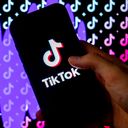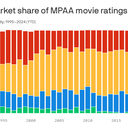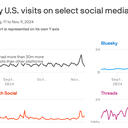NFL, Netflix break streaming records with Christmas Day double-header
NFL's Christmas Day double-header games were the most-streamed NFL games in U.S. history, according to preliminary Nielsen figures that don't include international viewership.
Why it matters: Once international figures and additional U.S. data is calculated, the league expects both games will have averaged around 30 million viewers each, a source told Axios, representing a massive win for Netflix's live sports ambitions.
- The massive viewership numbers show the platform's potential for attracting big eyeballs to major sporting events, especially abroad.
Context: Last year's Christmas Day match on traditional television between the Kansas City Chiefs and the Las Vegas Raiders drew 29 million viewers, the second-highest Christmas Day game since 1989.
By the numbers: The first Christmas Day game between the reigning Super Bowl champion Kansas City Chiefs and the Pittsburgh Steelers, had an average minute audience of 24.1 million, per Nielsen figures provided by the NFL.
- Nearly one-third of Netflix's global concurrent viewers on Christmas Day were watching the game at one point, a spokesperson said Wednesday, making it the most-watched concurrent stream of any Christmas Day for Netflix in the past four years.
- The second Christmas Day game between the Houston Texans and the Baltimore Ravens had an average minute audience of 24.3 million.
- It was the most-watched Christmas Day game on record among 18-34 year-olds, per the NFL, with 5.1 million U.S. viewers. (That figure is based on Nielsen records dating back to 2001).
- U.S. viewership for Ravens-Texans game peaked at Beyonce's halftime performance, with over 27 million viewers tuning in.
Zoom out: In total, the NFL's Christmas Day broadcasts on Netflix, including its pre-game shows and Beyonce's performance, were viewed by at least 65 million people, representing a remarkable day of total viewership for the NFL.
- A Netflix spokesperson said the Chiefs-Steelers game drew viewers from roughly all of the 190 countries in which Netflix is available at some point during the broadcast.
- For the NFL, which has major international expansion ambitions, Netflix's global audience reach is a huge selling point when considering future streaming rights.
Zoom in: Netflix spared no cost trying to nail its broadcast.
- The company reportedly invested around $150 million on the broadcast, and cut a big pay check for Beyonce to perform at halftime.
The big picture: Sports are becoming a bigger part of Netflix's live programming ambitions.
- The company started experimenting with live programming in 2023, when it aired the "Love is Blind" Season 4 reunion special in real-time.
- It's since experimented with a few live comedy specials.
- Wednesday's Christmas Day game was the second-most popular live title on Netflix to date, the company said.
Yes, but: Netflix, like most major streamers, will have to work on its technical infrastructure to ensure it has the bandwidth to support major live sporting events without any glitches.
- The "Love is Blind" Season 4 reunion special was delayed and canceled due to technical issues on the day it was supposed to air.
- The company's Nov. 15 live fight between Jake Paul and Mike Tyson was marred by buffering and freezing issues for some users.
- While the streamer worked with third-party broadcast and production groups on the event, the game still included minor glitches, which is common for new streamers airing popular live sporting events for the first time.
What we're watching: Netflix's successful first live NFL game will serve as an example to other sports leagues that the streamer, which previously said it had no intention of getting into live sports, can attract a big audience.
- Next year, Netflix will become the exclusive streaming home to the WWE. That $5 billion distribution deal includes many live events.
- Netflix last week inked a deal to broadcast the FIFA Women's World Cup in the U.S. in 2027 and 2031.
What's next: Global ratings and additional U.S. insights will be released on Dec. 31, the NFL said. Those figures will provide a more comprehensive look at the NFL;s Christmas Gameday performance globally on Netflix.














